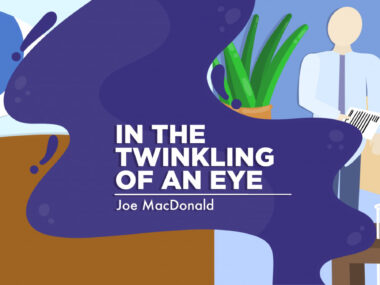Siblings’ shared hemophilia experience creates a stronger bond
These brothers, 10 years apart and with different symptoms, are their own unit
Written by |

My sons have severe hemophilia A and are 10 years apart. Such a considerable age difference once posed challenges, especially when they were younger.
Back then, my oldest son, Julian, felt he and his brother, Caeleb, didn’t have common interests. I reminded Julian that siblings close in age often struggle to relate to each other, but he couldn’t see how he’d ever have a relationship with his little brother. Even their bleeding disorder manifested differently, as Caeleb had numerous bleeds by age 2 and Julian didn’t.
While the age gap between my sons was significant, there were numerous times when having a little brother brought Julian laughter and joy. When Julian was 12, he had a significant muscle bleed. (Even today, he continues to be fortunate to have never experienced a joint bleed.) He was bedridden for a few days, but his room’s television remote was missing, so the family used one device for sets in two rooms. That’s when Julian played his “big brother card” and had Caeleb, then 2, at his beck and call.
“Hermes, I need the remote,” Julian dramatically cried out. Within seconds, Caeleb appeared in a T-shirt and diaper, holding the remote like a prized treasure. Even though this situation was playful, Caeleb was already fulfilling a role in the family, becoming a helper in the ways he could manage.
A rare perspective to share
Living with a family member who has a chronic illness, such as hemophilia, offers a rare perspective that’s often overlooked. Siblings, for instance, grow up with an awareness that their family life differs from others.
Even though the brothers shared the same bleeding disorder, their experiences were very different. Julian’s bleeds rarely interfered with his daily life while Caeleb often found himself at home, nursing a swollen knee or ankle. During these times, Julian lifted his brother’s spirits, assisted with infusions, and provided moral support. They supported each other in a way only siblings could, forming a bond that was as unique as it was unbreakable.
My sons’ bond sustained them through their early years. It was a connection born of shared struggle, each infusion and hospital stay strengthening their understanding of each other in a way my husband and I could never comprehend. They became each other’s caregivers, sometimes through practical tasks like infusions and other times by simply being there for each other.
Caeleb looked up to his big brother, finding comfort in his presence. As the elder sibling, Julian assumed the role of protector, his voice a beacon of reason and compassion for Caeleb in his battles with hemophilia.
Over the years, their relationship deepened as their bond cemented. Caeleb looked up to Julian as an older brother and as someone who understood hemophilia’s challenges, pain, and difficulties. And Julian has grown into a man who sees past his brother’s bleeds or missed school days; he has a deep understanding of Caeleb’s plight and his own way of offering him help.
Together, Julian and Caeleb have become each other’s fiercest champions.
Their shared struggle brings out the best in each other through laughter and compassion. Their bond is a testament to the strength and resilience they’ve developed along the way.
Note: Hemophilia News Today is strictly a news and information website about the disease. It does not provide medical advice, diagnosis, or treatment. This content is not intended to be a substitute for professional medical advice, diagnosis, or treatment. Always seek the advice of your physician or another qualified health provider with any questions you may have regarding a medical condition. Never disregard professional medical advice or delay in seeking it because of something you have read on this website. The opinions expressed in this column are not those of Hemophilia News Today or its parent company, Bionews, and are intended to spark discussion about issues pertaining to hemophilia.




Leave a comment
Fill in the required fields to post. Your email address will not be published.